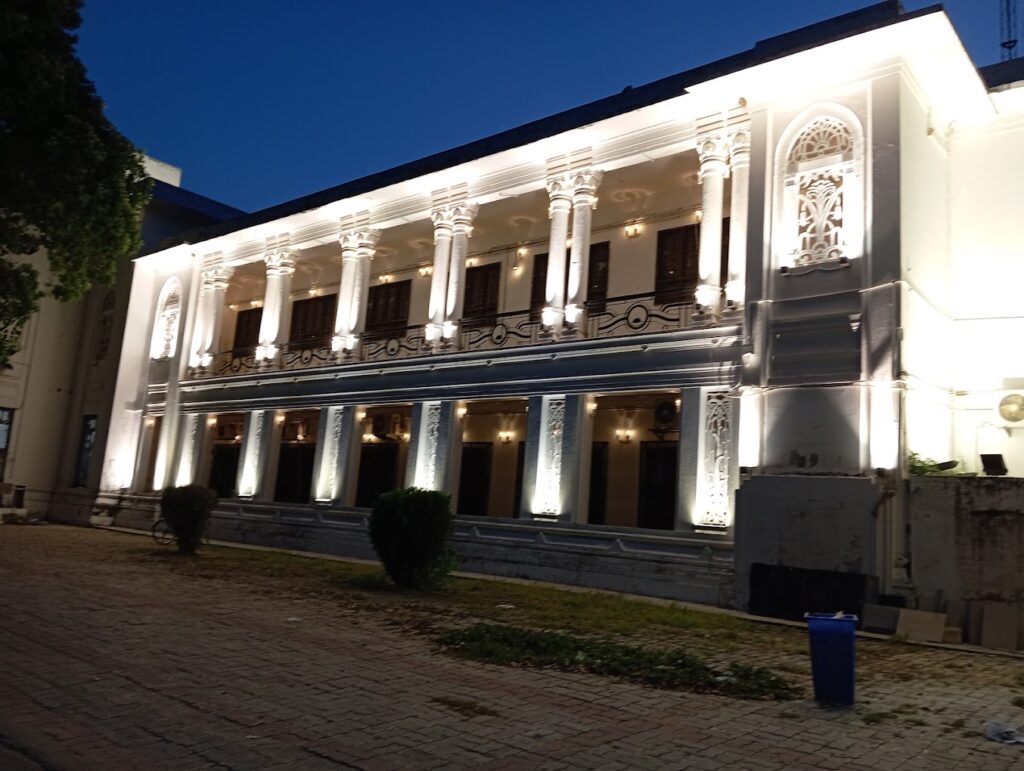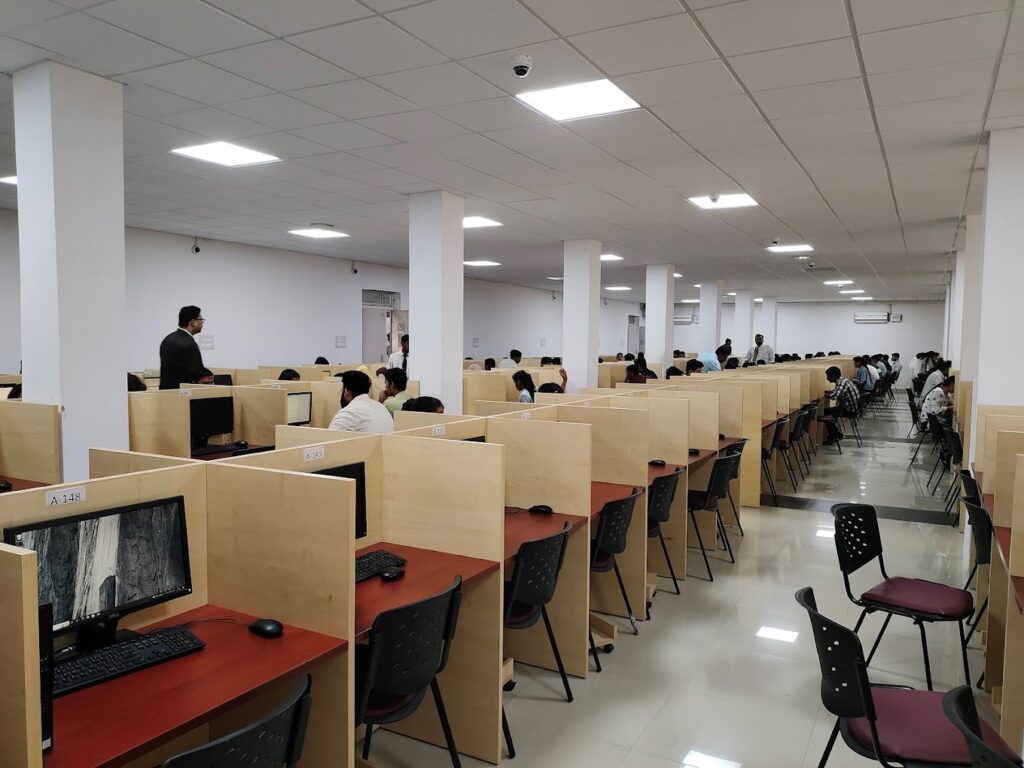Cyber Library
Empowering the Digital Scholars of Tomorrow
The Cyber Library, located within the historic Tagore Library at the University of Lucknow, represents a transformative leap in the institution’s commitment to academic excellence and innovation. Since its establishment in 2019, the Cyber Library has evolved into one of the largest and most advanced university-based digital libraries in India. It stands as a pivotal center of knowledge democratization, bridging traditional academic values with modern technological integration.

Vision and Mission
The vision of the Cyber Library is to foster an inclusive, digitally empowered academic environment that meets the evolving needs of a global knowledge economy. It seeks to empower students, researchers, and faculty by providing universal, equitable, and seamless access to high-quality digital resources and cutting-edge research tools.
Its mission is grounded in:
- Enhancing academic productivity through easy access to scholarly content.
- Promoting digital literacy and research excellence.
- Supporting lifelong learning by enabling anytime, anywhere access to knowledge.
Infrastructure and Technology
Strategically situated on the ground floor of the Tagore Library, the Cyber Library is a vibrant, air-conditioned learning space that spans a substantial area equipped with 538 high-speed, internet-enabled computer systems. Each workstation is ergonomically designed for extended use, accommodating both individual study and collaborative projects.
Advanced network infrastructure ensures uninterrupted access to thousands of international databases, e-journals, e-books, and multimedia content. The facility includes:
- High-bandwidth Wi-Fi connectivity
- Multi-display LED information systems
- Real-time usage tracking and analytics
- Energy-efficient lighting and cooling systems
- Digitally controlled access and monitoring for safety
Diverse Digital Resources
The Cyber Library grants access to a broad spectrum of digital materials, crossing disciplinary and regional boundaries. Its content curation focuses on ensuring relevance, authority, and depth across academic disciplines.
Key resource categories include:
- E-books and Journals from leading publishers (Springer Nature, Elsevier, Taylor & Francis, Pearson, etc.)
- Multidisciplinary Databases (ProQuest, EBSCO, Bibliotex, World Technologies)
- Legal Research Tools (Manupatra, LexisNexis, SCC Online)
- Academic Portals and MOOCs
- Video Lectures and Tutorials
- Subject Gateways and Encyclopedias
Furthermore, with access through e-ShodhSindhu and DELNET, users benefit from a massive repository of 8,000+ full-text journals and curated archives vital for high-quality research.
Student-Centric Learning Space
Known affectionately among students as a “study adda,” the Cyber Library offers more than just access to resources—it provides an intellectually stimulating, distraction-free atmosphere that attracts over 3,000 students daily. Its structured ambiance and tech-integrated environment encourage long study hours and foster peer learning.
Additionally, dedicated zones cater to specific user needs:
- Competitive Exam Zone with preparatory material for UPSC, NET, GATE, CAT, etc.
- Research Assistance Desks
- E-learning Booths for video lectures and webinars
Academic Integrity and Research Support
The Cyber Library emphasizes ethical scholarship by offering plagiarism detection services through URKUND (Ouriginal), helping scholars maintain academic integrity. It also supports:
- Citation and referencing workshops
- Research methodology training
- Library orientation programs
- Digital literacy campaigns
Governance and Management
The Cyber Library Management Committee (CLMC), composed of faculty members and research scholars from diverse disciplines, oversees the operation, policy formulation, and resource planning of the library. This collaborative governance ensures that the Cyber Library evolves in tune with academic trends, user needs, and technological advancements.

Remote Learning and Accessibility
In response to the growing need for flexible learning, the Cyber Library extends its services beyond physical walls. Through secure credentials, registered students and faculty can remotely access:
- E-journals
- Databases
- Digital archives
- Legal libraries
- Open access portals
This has been especially vital for distance learners, researchers working off-campus, and faculty engaged in remote academic projects.
Future Roadmap
The Cyber Library is not static—it continues to innovate. Upcoming plans include:
- Integration with AI-driven discovery tools and semantic search engines
- Creation of a digital repository for university publications and theses
- Collaboration with global open-source academic networks
- Development of a mobile app for resource access and real-time assistance
- Hosting virtual research symposiums, online book clubs, and digital literacy webinars
The Cyber Library is a shining example of how traditional academic institutions can adapt and thrive in the digital era. It serves not just as a facility, but as a catalyst for intellectual growth, research empowerment, and academic innovation. With its dynamic offerings and user-centric approach, the Cyber Library continues to elevate the learning landscape at the University of Lucknow, preparing students to lead with knowledge in a digitally interconnected world.
